 I’ve posed a question in the title of this week’s Sunday Train that I have no intention of answering myself.
I’ve posed a question in the title of this week’s Sunday Train that I have no intention of answering myself.
The first thing you may have noted is that the title presumes a “Great 2017 Policy Unlock” that is by no means certain. And assuming an event in a title as a lead-in to talking about the likelihood of that event is a long-standing internet link-bait practice.
The second thing, however, is that even that would be focusing on political fortune telling, and the Sunday Train is not normally about making guesses about what will happen. It is more often focused on policy in the sense of thinking about what should happen and, sometimes, what we can do to make it more likely to happen.
The foundation of the Sunday Train is the premise that on our current track, with our current transport and energy systems, we are driving the possibility of retaining a national, modern, industrial economy over a cliff. We are doing that in three ways:
- Our Energy Production and our Transport Systems combined are responsible for a majority of our CO2 emissions, and even if we converted everything else in our economy to be 50% carbon negative ~ sequestering 50% as much CO2 as it present emits ~ our current Energy and Transport systems would be sufficient to drive the globe far enough into Climate Crisis to bring down our national industrial economy;
- And the world has hit Peak Petroleum Production, as is clear from the variety of “scraping the bottom of the barrel” oil and oil-replacement exploitation efforts taking place today, and has started to slide down the other side of the peak, so that an economy as exposed as our own to oil price shocks is going to lose massive ground compared to competing economies that are already positioned to shelter themselves from the impact of oil price shocks
- And we are heading toward the Energy Return on Investment cliff for the fossil fuels we produce ourselves that our current Energy and Transport systems relies upon, and as we slide down that cliff, the economic benefit of that domestic fossil fuel production will progressively decline, leaving us behind any national economies or continental economic systems that seriously pursue sustainable, renewable energy sources that are seeing growing Energy Return on Investment, due to technological progress.
Pick your poison, since any one of them is serious enough to either drive the US economy from the ranks of the core economies into the ranks of the semi-peripheral economies, or even to eliminate our ability to retain a national economy at all.
Given that premise, the “odds of success” in a political forecasting sense is not the focus of the Sunday Train. The focus is rather the prospect for improving those odds. Whether that is improving the odds from a 50% chance of success, or a 1% chance of success to a 2% chance of success, in either event it is worth the investment in effort to try … whether the mere 1/5 improvement in the odds, or the more impressive doubling in the odds, what is won in the event of a win is such a jackpot that its worth the effort to simply improve the odds a little bit.
 Since Gov. Brown saved the California HSR project for the second time (the first time was in 2012), I’ve had a look at the general issue of funding HSR with Cap and Trade, and looked at some possibilities for complementary conventional intercity rail in the Bay Area and the San Joaquin Valley north of Fresno … so I thought I might start moving south of Fresno.
Since Gov. Brown saved the California HSR project for the second time (the first time was in 2012), I’ve had a look at the general issue of funding HSR with Cap and Trade, and looked at some possibilities for complementary conventional intercity rail in the Bay Area and the San Joaquin Valley north of Fresno … so I thought I might start moving south of Fresno.
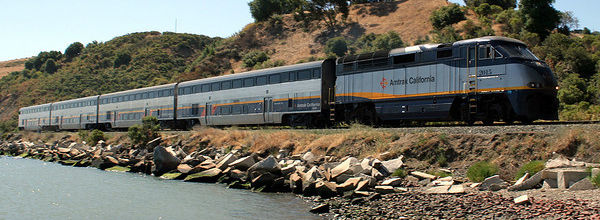 I’m a terrible tease ~ that is, in the sense of “not terribly good at it” ~ since I teased more on Texas Rooftop Solar, both two weeks ago when I
I’m a terrible tease ~ that is, in the sense of “not terribly good at it” ~ since I teased more on Texas Rooftop Solar, both two weeks ago when I 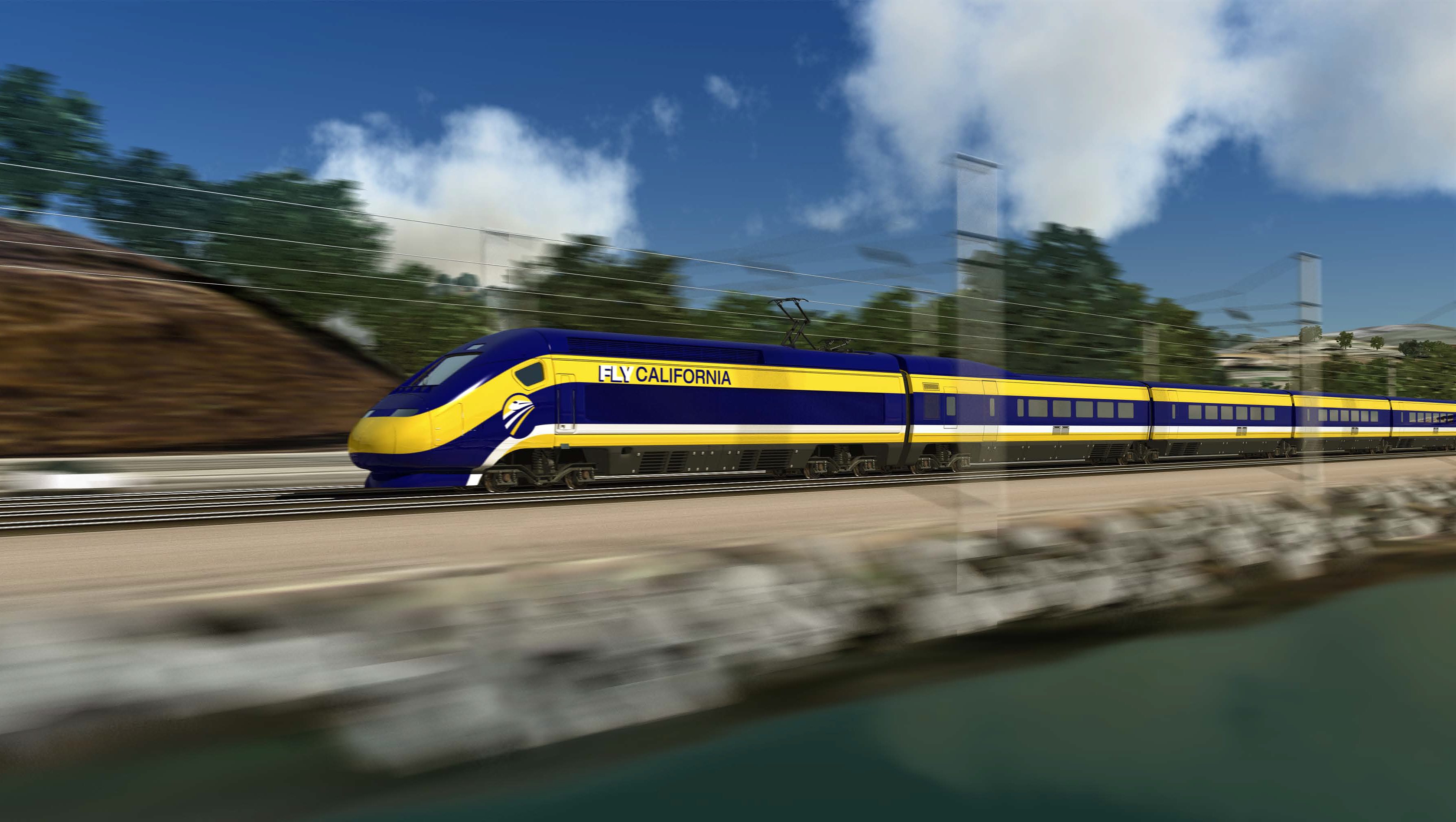 Sunday Train has covered the California HSR project on a number of occasions in the past. However, there was no special attention given to what was widely covered at the time as the “end of California HSR”, when a judge ruled that the proposed Business Plan did not meet the terms of the Prop1A(2008) which governed the sale of much of the $9m in state bond authority which had passed in 2008. The Sacramento Bee covered the issue at the time, including the
Sunday Train has covered the California HSR project on a number of occasions in the past. However, there was no special attention given to what was widely covered at the time as the “end of California HSR”, when a judge ruled that the proposed Business Plan did not meet the terms of the Prop1A(2008) which governed the sale of much of the $9m in state bond authority which had passed in 2008. The Sacramento Bee covered the issue at the time, including the 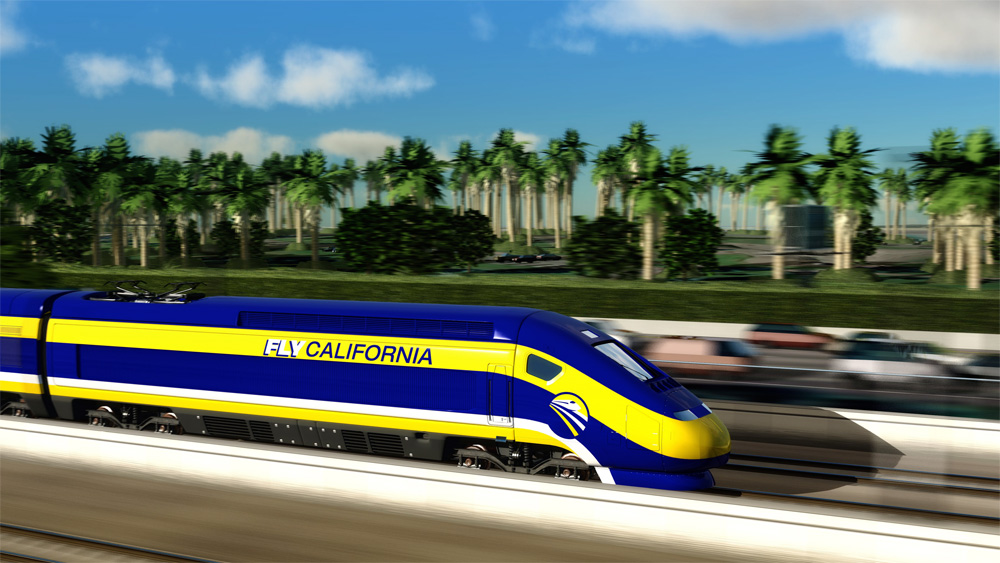 It’s a quite odd alliance. The Sierra Club is fighting the Climate Suicide Club both on the side of Supply, with
It’s a quite odd alliance. The Sierra Club is fighting the Climate Suicide Club both on the side of Supply, with  I’ve posed a question in the title of this week’s Sunday Train that I have no intention of answering myself.
I’ve posed a question in the title of this week’s Sunday Train that I have no intention of answering myself.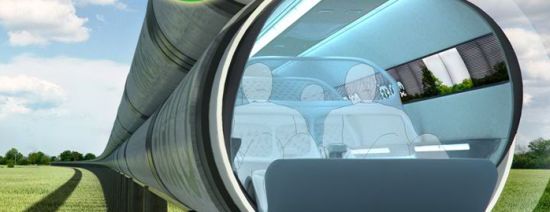 On Monday, entrepreneur Elon Musk launched on attack on the California HSR system in the guise of a pie in the sky alternative that he has dubbed the “Hyperloop”. Now, I got into this topic from the back end, since I waited for the technical people to download the PDF and chew into it before giving it a serious look, so when I first encountered the notion floated that this is just a car builder (well, an electric car builder) attacking a rival form of transport, I thought that might involve some shaky inference regarding motive for otherwise puzzling statements …
On Monday, entrepreneur Elon Musk launched on attack on the California HSR system in the guise of a pie in the sky alternative that he has dubbed the “Hyperloop”. Now, I got into this topic from the back end, since I waited for the technical people to download the PDF and chew into it before giving it a serious look, so when I first encountered the notion floated that this is just a car builder (well, an electric car builder) attacking a rival form of transport, I thought that might involve some shaky inference regarding motive for otherwise puzzling statements …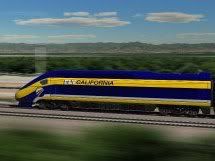 This coming week is supposed to contain an important symbolic Independence Day: the day when the California State Senate votes whether or not to proceed with one strategic element of Energy Independent Transport for the State of California, or whether to gamble the state’s future on petroleum.
This coming week is supposed to contain an important symbolic Independence Day: the day when the California State Senate votes whether or not to proceed with one strategic element of Energy Independent Transport for the State of California, or whether to gamble the state’s future on petroleum.
Recent Comments